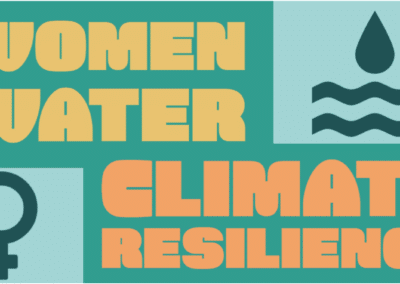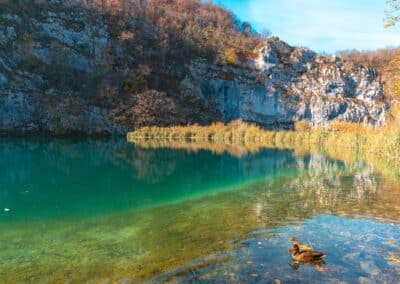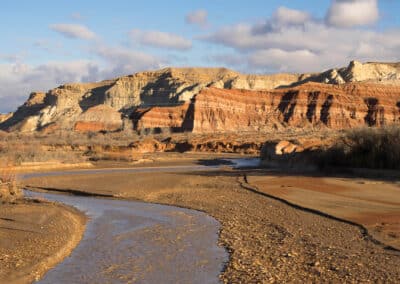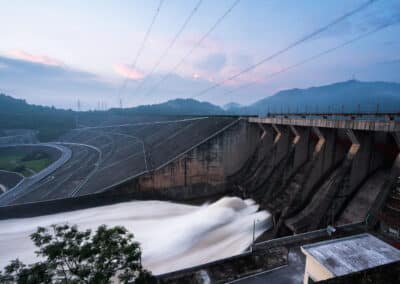by Amy Alvarez
It was my last semester of college. I was a senior at the University of Wisconsin-Milwaukee and I had not decided which field I wanted to pursue a career in yet. I had, however, narrowed it down to two choices: Volcanology or Hydrology. My degree was in Geosciences, so I had been studying the Earth and its processes for the last five years at this point. I knew I wanted to go into a field that was interesting and captivating, hence volcanoes, but I also knew I wanted to help people.
I have always wanted to help, protect, and serve my community. That is probably why I also served in the United States Marine Corps. It wasn’t until I received an email from my chemical hydrology professor about an internship with True Elements that I fully embraced a career in water. This was also at the start of the COVID-19 pandemic, so an internship that allowed me to work remotely was perfect.
Water is essential for all living things, and every single drop of it is intrinsically connected. I say that again, all water on Earth is connected, re-used, recycled year in and year out. It’s very possible that the water Sir Isaac Newton drank is now collecting on your rooftop as it rains today. Water is such a precious resource that when abundant, humanity tends to take it for granted. On the opposite side of the water quantity scale, when water is scarce, we treat it as liquid gold. I wanted to find ways to help communities around the world achieve true water equity. On my journey to find my career path, I landed in a job bound by water, and I will not ever look back.
When one thinks of Earth, it’s easy to think we have an abundance of this precious resource. We call our home the “Blue Marble” after all. But all water is not created equally. Earth’s water circulates the globe through the water cycle or hydrologic cycle, and excluding chemically bound water, the total amount of water on the Earth is ~1.4 billion cubic kilometers (1.4 x 10^9 km^3). Can’t picture how much water that is? Well, it’s easier than you expected: think oceans.
Almost 98% (97.6% to be exact) of that water is salt water in the ocean! This is practically useless to us as humans as we need fresh water to live. So, of that remaining 2.4%, this is how our freshwater is broken down; 87% in solid form (ice), 12% groundwater, and therefore slightly more than 1% is surface, bio-spheric and atmospheric water. These numbers are the numbers that drove me to my career; not salary, not number of vacation days offered, and not the number of hours I would be working. I was influenced by the amount of water we have at our disposal and wanted to help find solutions to guide people in making better water-related decisions.
The 20th century witnessed numerous wars that were fueled by the desire to control oil resources. However, it is becoming increasingly evident that in the 21st century, conflicts will be primarily centered around water scarcity. Unlike oil, water is irreplaceable, and its true economic value is often not reflected in its cost. Water is an essential component of human survival, and it is imperative that we treat it with the care and respect it deserves. As we face the challenges of climate change and the impending water crises, it is our responsibility to take action and develop long-term solutions to ensure a sustainable future for all. Our children and grandchildren will rely on us to address the water scarcity issues and create a world where everyone has access to clean and safe water. Therefore, we must prioritize sustainable water management practices and make informed decisions to ensure that water resources are conserved and managed equitably for generations to come.

Amy L. Alvarez served five years in the United States Marine Corps (2010-2015). Eight months of which she aided the Fleet Assistance Program by working at the Miramar Recycling Center in Marine Corps Air Station California. It was during this stay that her eyes were opened to what sustainability really meant. After her honorable discharge from the military, she obtained her Bachelor’s of Science from the University of Wisconsin-Milwaukee in Geoscience-Hydrology graduating cum laude in 2020. She has been Product Manager of True Elements Inc. for over two years, after completing an internship with the company in July of 2020.




